
Because a friend on Goodreads raved so passionately about Melissa Sweet's Some Writer! The Story of E. B. White that I could not wait to get my hands on a copy, and because said copy was not immediately available at the local branch of the blessed New York Public Library, I found myself drawn to a languishing edition of One Man's Meat. It is ridiculous to review a seventy-five-year-old book, but that hasn't stopped me:
One Man's Meat by E. B. White
This house, this house now held in Sunday's fearful grip, is a hundred and twenty years old. I am wondering what Sabbaths it has known. Here where I sit, grandfather H. used to sit, they tell me—always right here. He would be surprised were he here this morning to note that the seams in the floor have opened wide from the dry heat of the furnace, revealing the accumulation of a century of dust and crumbs and trouble and giving quite a good view of the cellar. (46)
For the last six days, I have been inhaling my mother's 1944 edition of E. B. White's volume of heavenly essays, written between 1938 and 1943 when White was both farming in Maine and doing his duty as a watchman to support the War effort.
My edition lacks a dust cover but has an inscription dated 10/27/45 from a long-dead friend to my now-dead mother, Edna, on the occasion of her twenty-fourth birthday. This browning tome has been on my shelf for decades. And when I finally took it down and began to read, I almost drowned in the accrued feelings: This book, this book is seventy-five years old. And I am wondering about all the hands that held it—from the printer's to warehouse workers' to bookstore clerks' to my mother's dear friend Tommy, to young, optimistic Edna, a budding writer, who—once we were both finally grown up enough to be friends—often mentioned E. B. White and kept this book through marriage, popped fantasy bubbles, and numerous dwellings. We never talked much about books, and although I remember her expressing reverence for White's writing, in my arrogance, ignorance, and youth, I never thought to explore his work beyond Stuart Little, which was enough to make him my hero for life. (I didn't see the need to read Charlotte's Web until a few years ago when it beckoned from my top shelf and ended up being a driving force in my own novel, The Last Will & Testament of Zelda McFigg—so it was research. I blush at my oblivion.) Edna died in 1990 at age sixty-eight, the age I will turn in two days, and I want her back so we can talk: "I get it! I get it!" I cry. "If only I had known more when you were alive so we could share our love for Andy White." Read More


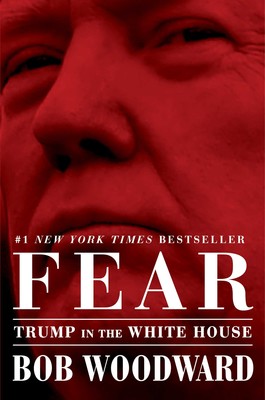 About a quarter of the way through this comprehensive history of everything leading up to the election of Trump and all the current events, Gary Cohn, the former president of Goldman Sachs who is the president's top economic advisor, attempts to explain our economy to Trump. He brings him copious research and data and finally makes it as simple as possible by asking: which would you choose—to go into a mine and get black lung or to make the same salary doing something else? He is attempting to intrude into Trump's belief that our trade agreements are disgraceful because we're losing manufacturing jobs—despite the data that more than 80 percent of our jobs are not in manufacturing and that a trade deficit is not a bad thing since it allows people to spend more money on what they're spending it on anyway—services. Nothing seems to penetrate.
About a quarter of the way through this comprehensive history of everything leading up to the election of Trump and all the current events, Gary Cohn, the former president of Goldman Sachs who is the president's top economic advisor, attempts to explain our economy to Trump. He brings him copious research and data and finally makes it as simple as possible by asking: which would you choose—to go into a mine and get black lung or to make the same salary doing something else? He is attempting to intrude into Trump's belief that our trade agreements are disgraceful because we're losing manufacturing jobs—despite the data that more than 80 percent of our jobs are not in manufacturing and that a trade deficit is not a bad thing since it allows people to spend more money on what they're spending it on anyway—services. Nothing seems to penetrate.
 James Comey is a very good writer, storyteller, and teacher, so on a literary level (except for one odd plot order choice—the highly dramatic John Ashcroft hospital showdown between Comey and Bush representatives—which I suspect has to do with the need to insert a ton of detailed background information), this book works.
James Comey is a very good writer, storyteller, and teacher, so on a literary level (except for one odd plot order choice—the highly dramatic John Ashcroft hospital showdown between Comey and Bush representatives—which I suspect has to do with the need to insert a ton of detailed background information), this book works.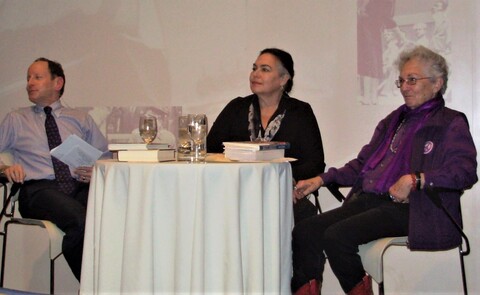
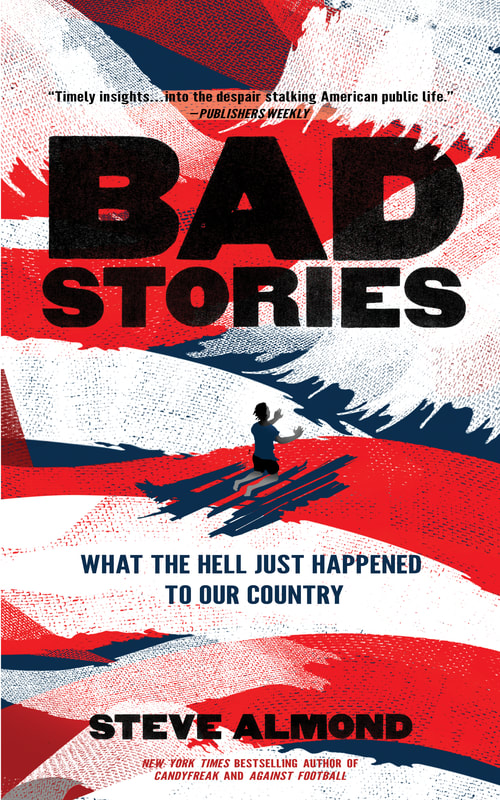 This book is staggeringly good. I was familiar with Steve Almond from his short stories, but this is straight journalism at its best (which he teaches at Harvard). (It is clear from Almond's thought processes and messages to students, presented in this volume, that he is a great teacher and seasoned journalist.)
This book is staggeringly good. I was familiar with Steve Almond from his short stories, but this is straight journalism at its best (which he teaches at Harvard). (It is clear from Almond's thought processes and messages to students, presented in this volume, that he is a great teacher and seasoned journalist.)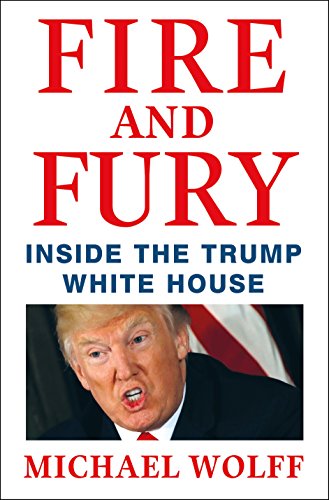 The reason more than 80 percent of New York City dwellers voted against Donald Trump was because we knew him—his history of pathological lying, his grandiose credit-taking for things he had nothing to do with, his cheating almost everybody who worked for him, his serial misogyny and complete lack of scruples. Mayor Mike Bloomberg said it straight at the Democratic National Convention: "I'm a New Yorker and I know a con when I see one." For people who liked Trump, his charm had to do with the fact that he was an unapologetic con artist who laughed at his own antics (for an example of the old Trump charm and humor at his own expense, listen to the
The reason more than 80 percent of New York City dwellers voted against Donald Trump was because we knew him—his history of pathological lying, his grandiose credit-taking for things he had nothing to do with, his cheating almost everybody who worked for him, his serial misogyny and complete lack of scruples. Mayor Mike Bloomberg said it straight at the Democratic National Convention: "I'm a New Yorker and I know a con when I see one." For people who liked Trump, his charm had to do with the fact that he was an unapologetic con artist who laughed at his own antics (for an example of the old Trump charm and humor at his own expense, listen to the  Timing is important. There is a time for rage and a time for laughter, and right now rage reigns—as it should. After centuries of suppression, critical mass has been reached, the #MeToo movement has exploded, and male bodies are flying. Time magazine has put it on its cover. It's about time!
Timing is important. There is a time for rage and a time for laughter, and right now rage reigns—as it should. After centuries of suppression, critical mass has been reached, the #MeToo movement has exploded, and male bodies are flying. Time magazine has put it on its cover. It's about time! What really happened? What always happens: Politics, like life, is not fair. Nobody tells the whole truth. Everybody thinks they're right and excoriates everybody who doesn't agree with them. And the best we can do with this mess is try to listen to everybody with an open mind, make the best choices we can—knowing that none of them are perfect, and when we are in peril, choose whatever compromise most assures life.
What really happened? What always happens: Politics, like life, is not fair. Nobody tells the whole truth. Everybody thinks they're right and excoriates everybody who doesn't agree with them. And the best we can do with this mess is try to listen to everybody with an open mind, make the best choices we can—knowing that none of them are perfect, and when we are in peril, choose whatever compromise most assures life. I've been waiting for this book—the words of highly trained mental health professionals who are brave enough to risk backlash from their own associations by putting the safety of all people ahead of their rules to say nothing about individuals they have not treated. In a meticulously written foreword, one of the authors makes the case that "duty to warn" people whose well-being is in danger trumps the "Goldwater Rule" about silence. (There is an entire section of chapters on the ethics of speaking out—far too much to reduce into a review byte.) We are all in danger from this individual we have installed in the highest office in the land, and I consider the 27 authors of this step-by-step analysis of Trump's severe psychological impairments to be whistle blowers.
I've been waiting for this book—the words of highly trained mental health professionals who are brave enough to risk backlash from their own associations by putting the safety of all people ahead of their rules to say nothing about individuals they have not treated. In a meticulously written foreword, one of the authors makes the case that "duty to warn" people whose well-being is in danger trumps the "Goldwater Rule" about silence. (There is an entire section of chapters on the ethics of speaking out—far too much to reduce into a review byte.) We are all in danger from this individual we have installed in the highest office in the land, and I consider the 27 authors of this step-by-step analysis of Trump's severe psychological impairments to be whistle blowers. 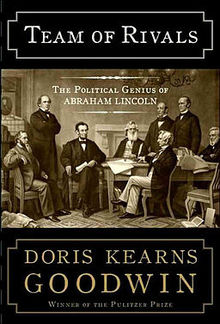 This is a wonderful nuanced book that resonates mightily with and informs what is going on today. Read it if you want to understand any kind of historical basis for what is now happening in the U.S. Read it if you love the minutia of history—every conversation ever recorded during the Lincoln period, every permutation and convolution of the Civil War, the complex emotional motivations behind the factions (a lot of people fought more for preservation of the union than out of any conviction about slavery)—or if you feel as if you need to learn U.S. history. This book has garnered enormous public attention as well as an award-winning movie based on it, so I am not going to write more commentary on what is in it. Instead, here are some opinions about the very important content that is missing.
This is a wonderful nuanced book that resonates mightily with and informs what is going on today. Read it if you want to understand any kind of historical basis for what is now happening in the U.S. Read it if you love the minutia of history—every conversation ever recorded during the Lincoln period, every permutation and convolution of the Civil War, the complex emotional motivations behind the factions (a lot of people fought more for preservation of the union than out of any conviction about slavery)—or if you feel as if you need to learn U.S. history. This book has garnered enormous public attention as well as an award-winning movie based on it, so I am not going to write more commentary on what is in it. Instead, here are some opinions about the very important content that is missing.